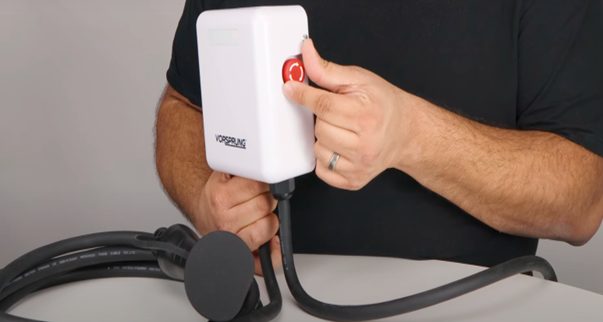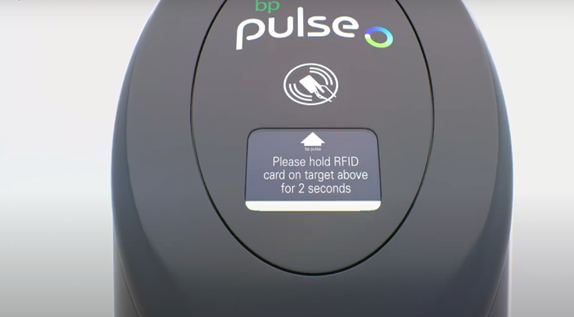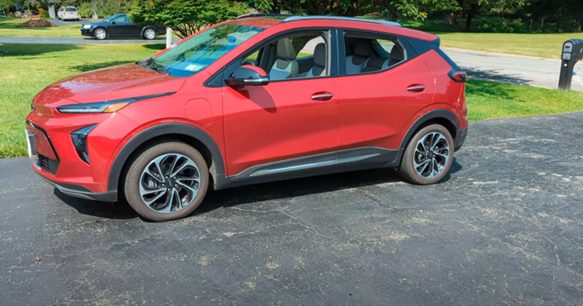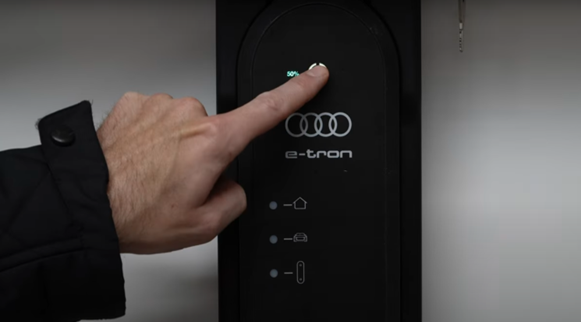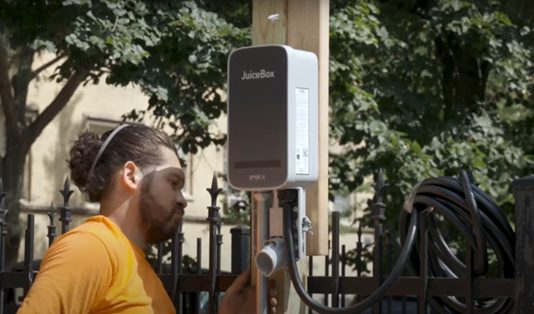Many owners of EVs are confused by the problem of slow car charging. It frustrates them and wastes a lot of precious time. If you’ve ever asked, “Why is my EV charging so slow?”,
This guide is for you.
We will consider the complexities of EV charging, examine state-of-charge, and certain EV models like Porsche Taycan, Audi e-tron GT, Hyundai IONIQ 5, Kia EV6, and Genesis GV60 with common EV charger types and their specs.
Also Read,
- How do you fix the Chevy Bolt EV charger tripping breaker?
- Why Does My Pod Point Charger Keep Tripping-DIY Steps
- ChargePoint Home Flex Tripping Breaker: Solution
Why is My EV Charger Charging Slowly? Can State of Charge (SOC) be a Factor?
The SOC, or how full your EV battery is, significantly impacts the car charging speeds:
High SOC
- When the battery is near fully charged, the charging speed will reduce to avoid overcharging, which may hurt the health of the battery.
Low SOC
- In the case of a low electric vehicle battery, the initial charging speed may be slower for protection, then speed up as the battery begins to charge.
Common Types of Chargers
Level 1 Charger (120V)
- Typically provides 3 to 5 miles per hour of charging.
Level 2 Charger (240V)
- Typically provides 10 to 60 miles per hour of charging.
DC Fast Charger (Level 3, 480V)
- Gives up to 60-100 miles in 20 minutes.
Why is My EV Charging So Slow-Answer
The impact of the SOC on charging rates is significant. Generally, mid-range charges prove to be the most efficient. However, problems related to slow charging can be overcome by using a Level 3 charger, such as the Tesla Supercharger or DC Fast Charger from Electrify America.
How Can I Speed Up My EV Charging?
Using Level 3: DC Fast Chargers
- Fast Charging Systems: DC Fast Chargers represent the fastest charging systems. Most of these can charge your battery to 80% in less than 30 minutes.
- Example: Porsche Taycan, if paired with a compatible DC fast charger, can charge up to 270 kW.
Pre-Condition Your EV Battery
- Pre-conditioning: It can be pre-conditioned before charging, particularly in cold weather, to optimize the effectiveness of charging.
- Models: A preconditioning function for the batteries is available on models from Tesla S and Audi e-tron.

Care for Your Electric Car Charging Equipment
- Regular Maintenance: The best performance from your charging ports and cables will come with regular cleaning and checking.
Keep Your Software Up to Date
- Software Updates: Manufacturers often release updates that optimize charging protocols to help improve efficiency in general.
Key Takeaway
Many DC fast chargers, including ChargePoint Express Plus and EVgo Fast Charging, can charge at much faster times.
Why is My Electric Car Not Charging at Full Speed in Cold Weather?
Factors Reducing Charging Speed in Cold Weather
Battery Chemistry
- Lithium-ion Batteries: Used in nearly all EVs, lithium-ion batteries are less efficient at low temperatures, leading to slower charging and reduced capacity.
Increased Energy Consumption
- Energy Demand: Cold weather requires more energy for cabin heating and battery heating, which draws power from the on-board car charger.
Key Takeaway
Precondition the battery and use insulated or indoor parking to minimize cold-weather effects on charging speeds. Why is My EV Charging So Slow can be answered by using Chargers like the ABB Terra DC Fast Charger can still be very effective in colder climates due to their sophisticated temperature management systems.
Can Sitting in Your Car While It Charges Slow Down the EV Charging Process?
Sitting in your car while it charges won’t actually affect the process much, but these features will:
Low-Intensity Activity
- Effect-Free Activities: The least activities, such as sitting or radio listening, are perhaps effect-free.
High Power Draw
- High-Energy Features: Charging can be slowed using the AC or other high-energy features; this draws power from what is being supplied back to the car.
Key Takeaway
Avoid running high-power features while car charging to preserve the fastest EV speeds.
Why is My Audi e-tron GT Charging Slow?
The Audi e-tron GT is a premium electric vehicle designed to provide high-performance hassle free driving while supporting ultra-fast DC recharging.
However, a number of variables can influence the actual EV charging speed:
Battery Temperature
- Optimal Temperature: Optimal charging happens at a particular temperature rating of the battery; thus, cold temperatures can slow it.
Charger Type
- Charging Speeds: Level 1 or Level 2 chargers charge much more slowly than a DC Fast Charger.
- Capability: The e-tron GT is capable of up to 270 kW with a DC Fast Charger, such as the Ionity Network.

Curve of Charge
- Charging Curve: The e-tron GT features a charging curve that tapers speed down as it becomes full in order to ensure the longevity of the batteries. This will address; Why is My EV Charging So Slow?
Key Takeaway
Use DC Fast Chargers—the Electrify America network—for the best charging speeds, and make sure your battery is preconditioned.
Why is My Hyundai IONIQ 5 Charging Slow?
1. Charger Compatibility
- The CCS Factor:
- The IONIQ 5 uses the Combined Charging System (CCS) standard for DC Fast Charging.
- Ensure you are connected to a DC Fast Charger that supports CCS; otherwise, charging will be significantly slower.
2. Station Power Output
- Not All Fast Chargers Are Created Equal:
- Most DC fast chargers provide high power, but some may have limitations.
- For the fastest charging speeds, look for stations with high-power CCS/SAE Combo capability.
3. Battery Temperature
- Keeping It Cool or Warm:
- Extreme temperatures can impact charging speed. The IONIQ 5 may slow down charging to protect the battery in very hot or cold weather.
- Tip: Park in shaded areas during peak summer heat to avoid direct sunlight. In winter, use the car’s app to pre-condition the battery to reach optimal temperature for faster charging.
4. State of Charge (SOC)
- Slowing Down at the Top:
- As with most EVs, the IONIQ 5 slows down when charging near full capacity. This is normal and not a cause for concern if you are only topping up.
5. App Misbehavior — Optional, if Applicable
- Tech Glitches Happen:
- If using the Hyundai app for features like pre-conditioning, glitches may interfere with the process.
- Restart the app or your phone to resolve potential issues.
Why is My Kia EV6 Charging Slow?
CCS Incompatibility:
The EV6 uses the CCS Combined Charging System standard when it comes to DC fast charging. Plugging into an incompatible charger, like CHAdeMO, drastically reduces the speed due to differences in power delivery protocols [1].
Limited Station Power Output:
DC Fast Chargers have different power outputs dependent upon the infrastructure at the station.
Based on studies by the DOE, there are large differences that affect charging time . Seek out High-Power CCS/SAE Combo enabled stations- it can reach 350 kW-to ensure the fastest charging for your EV6.
Temperature Extremes of the Battery:
A study from the Korea Electronics Technology Institute shows that extreme temperatures have a negative effect on battery performance, which charge speed no doubt follows.
It’s possible that the internal BMS on the EV6 throttles charging to protect the battery in very hot (>122°F) or cold (< 32°F) weather.
Communication of EV6 and the DC Fast Charger:
This is far less common, but it is nonetheless a fact that poor communication between the two devices could lead to a decrease in AC charging speed.
The potential causes could be either an out-of-date firmware of the station or some malfunctioning of the communication module within the charger itself.
Why is My Genesis GV60 Charging Slow?
- Many public DC fast chargers have a range of power outputs. This would be similar to, for example, 50 kW versus 150 kW. The fastest you will charge will be capped by the power output at the station you use.
- Shared Charging Infrastructure: At times, multiple vehicles will draw energy from the same source of power; thus, the charging speed supplied to each vehicle will be lower.
The software of your GV60 should be the latest. Many updates are issued by manufacturers to enhance charging efficiency and sometimes fix problems that are known to occur in previous versions.
- Charging Profile Settings: Go to the car’s settings to see if there are any configurable options with regard to the speed of charge or schedules that might have an impact on performance.
Key Takeaway: Use high-power charging stations and precondition the battery for the best results. The GV60 can charge from 10% to 80% in about 18 minutes with a 350 kW charger.
Final Thoughts: Why is My EV Charging So Slow?
Understanding the various factors that influence EV charging speeds can help you optimize your charging routine. From SOC and battery temperature to charger type and environmental conditions, each element plays a crucial role. By following these advanced tips and leveraging the full potential of your EV’s charging system, you can ensure faster and more efficient charging, minimizing downtime and maximizing your driving experience. Using high-power DC fast chargers from networks like Electrify America, ChargePoint, and Ionity can make a significant difference in reducing charging times.






